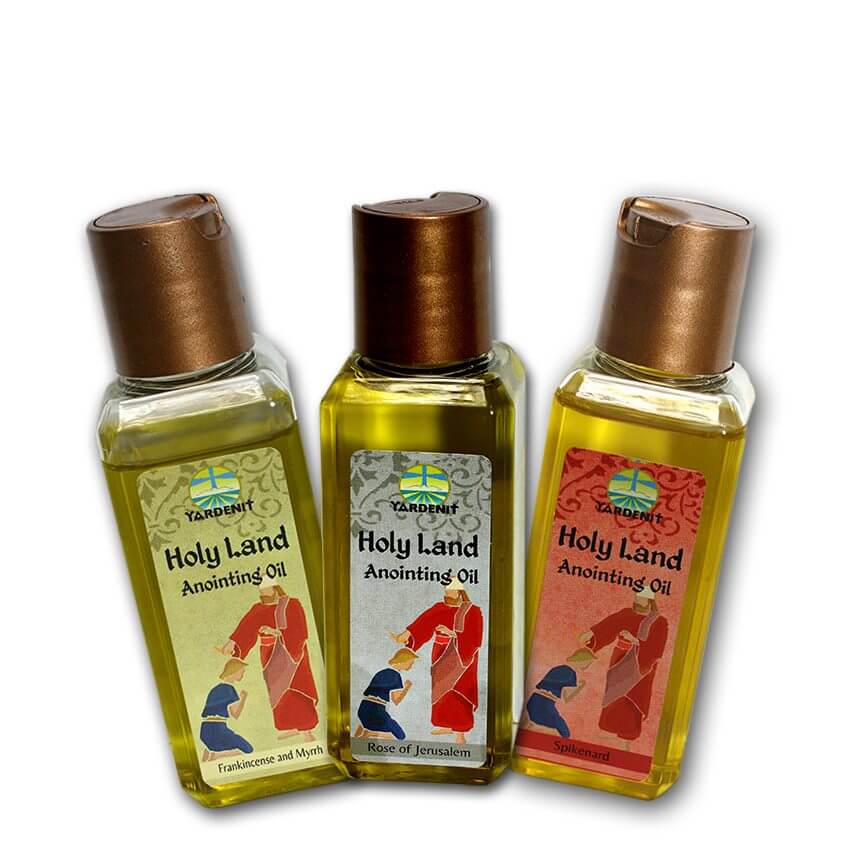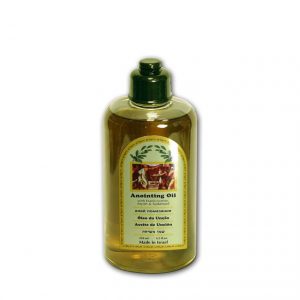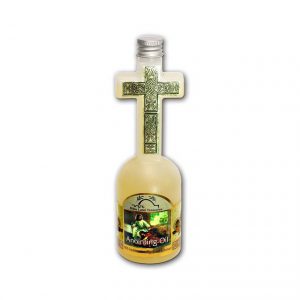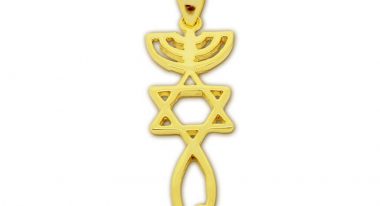
Anointing Oils
The anointing oil was used in religious rituals since ancient times. This age-old tradition is still alive. The ceremony of anointing with oil symbolizes the purification of the soul and body and our aspiration to G-d.
The anointing oil is also used for healing the sick. According to the Jewish beliefs, anointing oil gives strength, beauty, power of mind and spirit and health. The oil brings joy to the person who is being anointed – his face shines with oil just as it shines with happiness. Therefore, when you pour the anointing oil over someone’s head, you bestow him enjoyment and blessedness. To anoint someone is a sign of a great friendship and honor.
The Bible gives us clear instructions for the preparation of anointing oil:
Then the Lord said to Moses, “Take the following fine spices: 500 shekels of liquid myrrh, half as much (that is, 250 shekels) of fragrant cinnamon, 250 shekels of fragrant calamus, 500 shekels of cassia—all according to the sanctuary shekel—and a hin of olive oil. Make these into a sacred anointing oil, a fragrant blend, the work of a perfumer. It will be the sacred anointing oil’’.
. Exodus 30:22-26
Traditionally, anointing oils are made from following ingredients:
Frankincense
Frankincense is a resin that oozes from a small tree grown in North Africa. The resin is thickens and solidifies on the air in a form of large droplets of amber color. In the days of the Temple, incense with Frankincense was placed on the Altar of the Tabernacle. It was used for burial and for purification ceremonies. Frankincense was a main component of most anointing oils.

Myrrh
This fascinating biblical fragrance was utilized for purification and embellishment rituals. The taste of this spice is bitter, but its smell is sweet. The word “myrrh” comes from the Arabic word “mar”, which means bitter.
Spikenard
It is exotic and expensive oil from the tree Nardostachys Jatamansi that grows in India. Mary of Bethany used this oil to anoint with it the Messiah before his death. It is recorded in the Bible: “Then Mary took a pound of ointment of spikenard, very costly, and anointed the feet of Jesus, and wiped His feet with her hair: and the house was filled with the odor of the ointment.” John 12:3.
This oil comes from a plant of the same name. One of the prime spices of the anointing oil, used to bless priests and kings. Spiritually, cassia symbolizes obedience and humbleness.
Cedar of Lebanon
This tall evergreen tree oozes a gum-like resin that makes extremely aromatic oils. The meaning of this fragrance is power, stability, integrity and renewal.
Henna
Since ancient times until today henna was used for the cosmetic purposes. This bright-colored dye is used for making tangled patterns on the hands and feet of brides. The legend says that this plant’s seductive fragrance was probably a main ingredient of Cleopatra’s perfume.
Rose of Sharon
This fragrance comes from a flower of the hibiscus family. Its aroma is very light and floral, but not too sweet at the same time. Rose of Sharon is the attribute of the highest wisdom. It symbolizes fertility, heavenly betrothed king Solomon’s bride; and often in a poetic way it represents Jesus and Mary in Christianity.
Pomegranate
Certainly, one of the earliest fruits known and cultivated by humankind. In the Jewish tradition pomegranate symbolizes righteousness and virtue, because it is believed that there are 613 seeds in the pomegranate, just as 613 commandments of the Torah. The pomegranate oil has a pleasant fruity aroma and is well known for its amazing healing properties.







